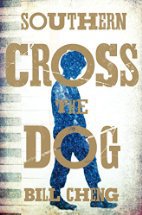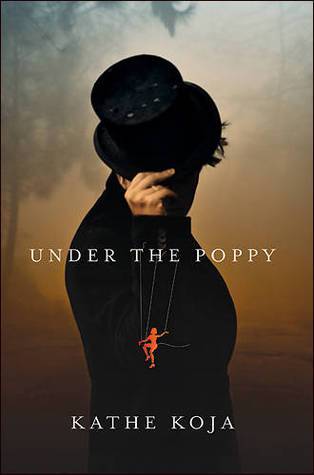
Read 15/07/2017-17/07/2017
Rating: 3 stars
Read for The Reader’s Room Road Trip Challenge
1927: a devastating flood changes lives in Mississippi. Eight year old Robert Chatham, his father Ellis and mother Etta, are driven from their home by the rising flood waters. They start to wade towards higher ground, an exhausting process that is only partially alleviated when a man in a rowing boat picks them up. He sets Ellis to the task of rowing and takes from them their few belongings. He delivers them to an aid camp, where Ellis argues with the guards trying to keep order and we are left not knowing what will happen to them next.
1932: a prison farm for black prisoners. Eli Cutter is serving time for manslaughter, but is about to be set free by a man who wants to set up a travelling musical show. Eli is a skilled keyboard player, piano or organ, a blues player of renown. Augustus Duke wants Eli for his troupe, enough to buy his freedom.
So begins Southern Cross the Dog, a meandering tale of life on the edges in Mississippi.
I thought the book made an interesting contrast to The Heart is a Lonely Hunter. Set in roughly the same era, but in Mississippi not Georgia, it portrays the lives of African Americans from their perspective. Just as Carson McCullers wasn’t writing black characters’ lives from direct experience, Bill Cheng doesn’t either. Cheng is American-Chinese, from New York City. It made me wonder how true each of these novels is to African American experience. I know you don’t have to be from a time or of a culture to write about it, or imagine how things might have been, but my recent reading makes me question how authentic literature about black history is when not written by black authors. It makes me question how much easier it is to pick up books written about black experience that aren’t by black writers. Throughout Southern Cross the Dog, I couldn’t shake the feeling that Cheng was writing what he thought black experience might have been, based on what he has read in other novels, or seen in films, or extrapolated from the lyrics of the blues songs he acknowledges as the inspiration for this book. He does a pretty good job, but not a completely convincing one.
One thing I liked about Cheng’s approach is that he doesn’t signpost that his characters are black. The main characters are never described as black when Cheng is writing them, only when white characters are talking about them. This contrasts with how Michael McDowell wrote his black character in The Elementals. Nor are the white characters described as such by Cheng. Skin colour is only mentioned when a person of different colour is considering another character. I liked how this subtle difference between Cheng’s writing and that of earlier writers, like McCullers and McDowell, set the tone that we are all human, and made the prejudice on display all the clearer.
Life for African Americans in 1930s Mississippi is described dispassionately, as a thing that cannot be argued with. It is what it is, and must be borne. The men in particular, pressed into working for the government in the aftermath of the flood, are always only a step away from being punished, usually without doing anything wrong, usually at the whim of an embittered white man who wants to take his violence out on someone. The men do what anyone in their situation would do: shut out of wider society, they develop their own, with its own code, its own traditions, its own entertainments. They withstand the brutality of their working lives by living for their leisure time, the time when they are largely left alone to be themselves.
Robert and Eli both end up in the town of Bruce, at the Hotel Beau-Miel. Robert is on his own. The flood has led to him losing everything and having to carve out his own way in the world. He is a sensitive boy who has to toughen up. He never feels at ease for very long, hiding away as much as he is able to, avoiding drawing attention to himself. Eli has a strong belief in devils and traditional remedies. When Robert has an accident at Beau-Miel that injures him badly, Eli gives him a talisman to protect him from the hex he says is upon him.
The narrative passes back and forth in time. Casual references to past events combine with straight exposition to form a picture of who Robert and Eli are and what has happened to them to form their characters.
There are other characters, of course. People whose paths cross with those of Robert and Eli. Dora, the girl who gave Robert his first kiss, before the flood turned lives upside down. The man who rowed the Chathams to the aid station. Duke, and Miss Lucy who runs the Beau-Miel. Hermalie, a girl who comes to work for Miss Lucy, and who forms a bond with Robert.
Cheng gives little away in developing the story. People are introduced without names or backstory. It lends an air of mystery to the book which pulled me in and had me guessing what was going to happen next, and how the characters were going to intersect. It’s a difficult thing to pull off, giving the reader just enough to pique their curiosity but not laying it all out on a plate. Cheng does it well.
The book ends in 1941. Robert is twenty two years old and working as part of a gang of labourers to drain a swamp so that a river can be dammed to generate electricity to power the towns nearby. He is desperate to be free from what he sees as his cursed life, and one attempt to escape it ends with him becoming the prisoner of a family of Cajun trappers. The description of how they treat Robert when they take him out hunting with them is deeply upsetting, not least because Robert is so resigned to it.
Robert gets a home-coming of sorts. He finally stops running, finds a place where he can exist within the frame of society. The book ends oddly, though. Ambiguously.
I enjoyed Cheng’s writing style. It’s very lush in its descriptions. Occasionally it feels as though Cheng is more in love with the words than with the meaning he wants to convey, but overall it makes for an easy flowing read.
Advertisements Share this:




